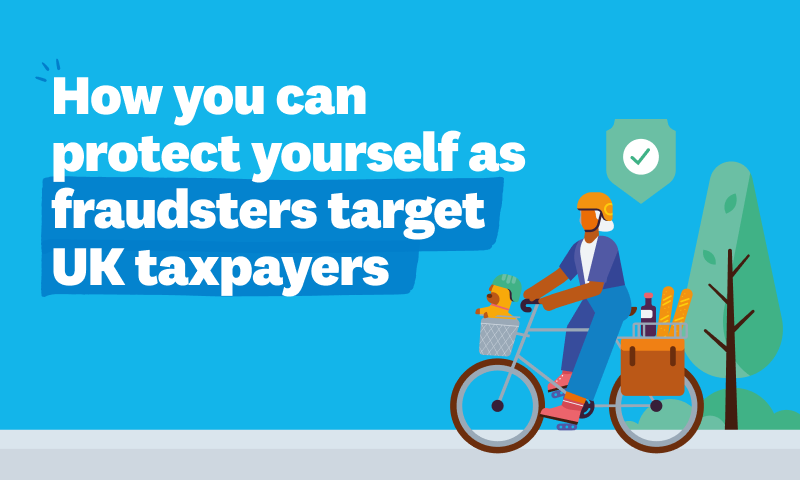
‘Tis the season for, well, lots of things. Get trick or treating out of the way, and then it’s time for the holidays. Finish unwrapping your presents, and get ready for New Year’s Eve. Once you’ve caught up on your sleep, it’s arguably the most exciting time of all – that’s right, tax season.
In all seriousness, tax season can be an extremely stressful time for taxpayers and accountants alike – perhaps even more so this year, with HMRC’s monumental change, Making Tax Digital (MTD) for VAT, fully underway for the first time.
Affected business owners and their advisors are adapting to this change while the self-employed and landlords are preparing for the arrival of next year’s MTD for Income Tax Self Assessment (ITSA) – both of which will result in greater efficiencies and less onerous admin.
However, a more pernicious issue is looming large.
HMRC has warned that taxpayers are increasingly being targeted by fraudsters, and should be mindful of scams where they can get hold of personal information or bank details. Here’s all you need to know about this burgeoning threat, and some steps to keep your details safe.
Threat landscape
According to HMRC, between September 2021 and August 2022 they have responded to more than 180,000 referrals of suspicious activity from taxpayers and of these referrals, almost 81,000 of these related to scams offering fake tax rebates.
I have personally received a few of these in recent months. They have included an automated telephone message telling me that I have underpaid National Insurance and to pay over the phone or face a criminal conviction, as well as emails claiming to be HMRC telling me to click a link to enter bank details to get my tax rebate. Suspicion piqued, thankfully I did neither.
I’m lucky enough to have a background in tax advisory, so I know the warning signs. But others won’t be aware of their tax position, especially those who are unrepresented. At a time where many are struggling, the prospect of free money from HMRC is appealing and I fear many will fall victim to these terrible scams over the next few months.
So, how can you tell if you are being targeted?
Be vigilant
First, it’s vital to remember that HMRC would never call someone threatening arrest. If you ever get this call, alarm bells should be ringing. In fact, if you receive contact from anyone claiming to be from HMRC in any way, you should take your time and check this advice on gov.uk.
If you suspect you are being targeted, you can report suspicious activity to HMRC by forwarding text messages to 60599 and any emails to phising@hmrc.gov.uk. If you receive a phone call, you can report it using this online form.
It’s also important to bear in mind this slightly pessimistic view: if it sounds too good to be true, it probably is. If you receive any correspondence from HMRC saying you are due a rebate or face criminal action if you don’t act now, just stop, take a minute and then contact HMRC directly if you have any concerns.
Steps to safety
Hopefully you escape this season without being targeted by fraudsters, but remember there are always extra steps you can take to keep your information safe.
First, use Multi-Factor Authentication or verification apps to build in additional levels of security. Second, always apply software updates on your devices as and when they become available. Third, never use the same password for different websites – you wouldn’t share your Netflix logins with someone if the password was the same as your Amazon account, for example.
Finally, never share your login information with anyone, regardless of how trustworthy they may seem. By bearing these points in mind, you should be able to avoid being caught out by fraudsters this tax season.
To learn more about MTD for VAT, check out our hubs for small businesses and accountants. If you want to find out more about MTD for ITSA, we have a host of resources available to get you up to speed.
The post How you can protect yourself as fraudsters target UK taxpayers appeared first on Xero Blog.
Leave a Reply